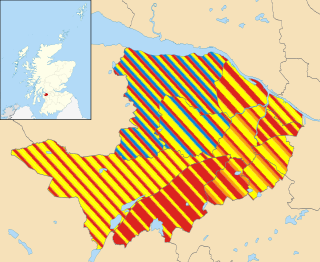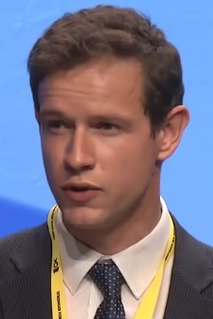The Politics of Aberdeen, Scotland have changed significantly in recent years. In 1996, under the Local Government etc. (Scotland) Act 1994, Grampian Regional Council and Aberdeen District Council were dissolved, creating the new unitary Aberdeen City Council to represent the city's council area.

Elections to Glasgow City Council were held on 3 May 2007, the same day as the other Scottish local government elections and the Scottish Parliament general election. The election was the first one using 21 new wards created as a results of the Local Governance (Scotland) Act 2004, each ward elected three or four councillors using the single transferable vote system a form of proportional representation. The new wards replaced 79 single-member wards which used the plurality system of election. It also saw the election of Glasgow's first councillors for the Scottish Green Party and for Solidarity.

Elections to the City of Edinburgh Council were held on 3 May 2007 the same day as the Scottish Parliament general election. The election was the first one using 17 new wards created as a results of the Local Governance (Scotland) Act 2004, each ward will elect three or four councillors using the single transferable vote system a form of proportional representation. The new wards replace 58 single-member wards which used the plurality system of election.
Elections to the Highland Council were held on 3 May 2007; the same day as elections to the Scottish Parliament and to the 31 other councils in Scotland. Previous elections to the Council had been conducted using the single member plurality system. Changes implemented by the Local Governance (Scotland) Act 2004 meant that future local government elections were to be conducted using the Single Transferable Vote, beginning with those in 2007. The 80 Highland Councillors were now to be elected from 22 wards, returning either three or four members.

Elections to South Lanarkshire Council were held on 3 May 2007 the same day as the other Scottish local government elections and the Scottish Parliament general election. The election was the first one using 20 new wards created as a results of the Local Governance (Scotland) Act 2004, each ward will elect three or four councillors using the single transferable vote system a form of proportional representation. The new wards replace 67 single-member wards which used the plurality system of election.

Elections to Midlothian Council were held on 3 May 2007, the same day as the other Scottish local government elections and the Scottish Parliament general election. The election was the first one using six new wards created as a result of the Local Governance (Scotland) Act 2004. Each ward will elect three or four councillors using the single transferable vote system a form of proportional representation. The new wards replace 18 single-member wards which used the plurality system of election.
Elections to Inverclyde Council were held on 3 May 2007 the same day as the Scottish Parliament general election. The election was the first one using six new wards created as a result of the Local Governance (Scotland) Act 2004; each ward will elect three or four councillors using the single transferable vote system, a form of proportional representation. The new wards replace 20 single-member wards which used the plurality system of election.

Elections to Renfrewshire Council were held on 3 May 2007, the same day as the other Scottish local government elections and the Scottish Parliament general election. The election was the first one using 11 new wards created as a results of the Local Governance (Scotland) Act 2004, each ward will elect three or four councillors using the single transferable vote system a form of proportional representation. The new wards replace 40 single-member wards which used the plurality system of election.

Elections to South Ayrshire Council were held on 3 May 2007, the same day as the other Scottish local government elections and the Scottish Parliament general election. The election was the first one using eight new wards created as a results of the Local Governance (Scotland) Act 2004, each ward will elect three or four councillors using the single transferable vote system a form of proportional representation. The new wards replace 30 single-member wards which used the plurality system of election.

Elections to Aberdeenshire Council were held on 3 May 2012, on the same day as the other Scottish local government elections. The election used the 19 wards created as a result of the Local Governance (Scotland) Act 2004, with each ward electing three or four Councillors using the single transferable vote system a form of proportional representation, with 68 Councillors being elected.

The 2012 Aberdeen City Council election took place on 3 May 2012 to elect members of Aberdeen City Council. The election used the 13 wards created as a result of the Local Governance (Scotland) Act 2004, with each ward electing three or four Councillors using the single transferable vote system a form of proportional representation, with 43 Councillors elected.

Elections to the Moray Council were held on 3 May 2012, the same day as the other 31 local authorities in Scotland. The election used the eight wards created under the Local Governance (Scotland) Act 2004, with 26 councillors being elected. Each ward elected either 3 or 4 members, using the STV electoral system.
Elections to Argyll and Bute Council were held on 3 May 2012 on the same day as the 31 other local authorities in Scotland. The election used the eleven wards created under the Local Governance (Scotland) Act 2004, with 36 councillors being elected. Each ward elected either 3 or 4 members, using the STV electoral system.
Elections to Falkirk Council were held on 3 May 2012, the same day as the 31 other local authorities in Scotland. The election used the nine wards created under the Local Governance (Scotland) Act 2004, with 32 councillors being elected. Each ward elected either 3 or 4 members, using the STV electoral system.

The 2012 West Lothian Council election took place on 3 May 2012 to elect members of West Lothian Council. The election will use the 9 wards created as a result of the Local Governance (Scotland) Act 2004, with each ward electing three or four Councillors using the single transferable vote system a form of proportional representation, with 33 Councillors being elected. The Bathgate Ward gained an additional seat for the 2012 elections. JAMAL The election saw Labour remain the largest party on the Council as they gained 2 seats. The Scottish National Party also made 2 net gains and significantly increased their vote share, outpolling Labour in terms of votes cast. The Scottish Conservative and Unionist Party retained their single seat on the Council and so to did the Independents. The Action to Save St. John's Hospital group were completely wiped out from the authority losing all of their 3 seats.

The 2012 Midlothian Council election took place on 3 May 2012 to elect members of Midlothian Council. The election used the six wards created as a result of the Local Governance (Scotland) Act 2004, with each ward electing three or four Councillors using the single transferable vote system a form of proportional representation, with 18 Councillors being elected.

Elections to South Lanarkshire Council were held on 3 May 2012 on the same day as the 31 other local authorities in Scotland. The election used the twenty wards created under the Local Governance (Scotland) Act 2004, with 67 Councillors being elected. Each ward elected either 3 or 4 members, using the STV electoral system.
Elections to North Lanarkshire Council were held on 3 May 2012 on the same day as the 31 other local authorities in Scotland. The election used the twenty wards created under the Local Governance (Scotland) Act 2004, with 70 Councillors being elected. Each ward elected either 3 or 4 members, using the STV electoral system.
The next Elections to West Dunbartonshire Council will be held on Thursday 4 May 2017, on the same day as the 31 other local authorities in Scotland. It will be the third successive Local Council election to run under the STV Electoral System. The election will use the six wards created under the Local Governance (Scotland) Act 2004, with 22 Councillors being elected. Each ward will elect either 3 or 4 members, using the STV electoral system.
Elections to Falkirk Council will be held on 4 May 2017, the same day as the 31 other local authorities in Scotland. The election will use the nine wards created under the Local Governance (Scotland) Act 2004, with 30 councillors being elected, a reduction of 2 members from 2012. Each ward will elect either 3 or 4 members, using the STV electoral system.












